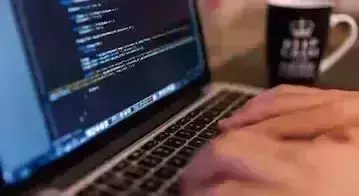
Government moves to regulate digital content, streaming with new rules
text_fieldsNew Delhi: The government's new rules to regulate digital content and streaming platforms will include a strict oversight mechanism involving several ministries and a code of ethics that bans content affecting "the sovereignty and integrity of India" and that which threatens national security, NDTV reported.
The Information Technology (Guidelines for Intermediaries and Digital Media Ethics Code) Rules, 2021 prescribes, for the first time, how digital news organisations, social media platforms and OTT streaming services will be regulated by the government.
A copy of the draft rules, set to be released by Information Technology Minister Ravi Shankar Prasad and Information and Broadcasting Minister Prakash Javadekar, is in circulation.
The oversight mechanism, according to the draft, will include a committee with representatives from the ministries of Defence, External Affairs, Home, I&B, Law, IT and Women and Child Development.
This committee will have "suo motu powers" to call hearings on complaints of violation of the Code of Ethics if it wants. The committee can warn, censure, admonish or reprimand violators and seek an apology besides other actions.
The government will designate an officer of the rank of a Joint Secretary or above as the "Authorised Officer" who can direct blocking of content.
The draft rules make traceability of the originator of messages a must on prominent social media sites, which goes against end-to-end encryption on messaging platforms such as WhatsApp and Signal.
The draft would force streaming services like Netflix and Prime Video, who objected to an independent appellate body for hearing streaming complaints, to submit to the authority of an appeals body headed by a retired high court or Supreme Court justice.
If this body believes that the content violates the law, it would be empowered to send the content to a government-controlled committee for blocking orders to be issued.
Here are key points from the draft:
• Bars content that is defamatory, obscene, libelous, racist, harmful to minors, threatens the unity, integrity, defence, security or sovereignty of India and its ties with other countries.
• Social media sites have to remove or disable offensive or illegal content within 36 hours of being notified or of a court order.
• Social media messaging sites have to enable tracking of first originator of information.
• The intermediary has to, within 72 hours, provide information to the government agency authorised to investigate cyber security incidents and violation of the law.
• Companies have to appoint a grievance officer to receive, acknowledge and resolve complaints within a month.
• An intermediary has to, within 24 hours of a complaint, remove or disable access to content that is illegal or offensive.
• A three-tier mechanism to enforce the Code of Ethics: self-regulation; self-regulation by the self-regulating bodies; government's oversight mechanism.
• An online grievance portal to receive and process all grievances from the public on any violation of the Code of Ethics and a grievance redressal officer.
• The grievance has to be addressed within 15 days.












